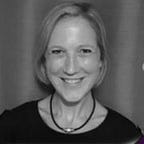The Real Cause of Climate Change
Or…how our emotions will drive our extinction
As a species, we are incredibly proud of our scientific advancements. And rightly so. Our discoveries and technologies have helped to extend life expectancy, expand food production, explore space, excite each other with new ideas, and entertain us in every waking moment. And yet, these incredible innovations have also led to rising rates of inflation, inequality, insecurity, isolation and mental illness. Of course, these activities have also created climate change, which is now threatening our existence. Politicians, scientists and activists are, understandably, appealing for a radical redirection to green solutions. However, what is not being discussed enough is the real cause of climate change — our mental, emotional and spiritual state.
The Natural Laws
Humans’ ability to exploit and manipulate their environment may lead us to believe that we are superior to the natural world. However, we are creatures of our context and are still subject to the natural laws that govern all life on this planet. These are concisely outlined in the seven Hermetic Laws, named after their creator, Hermes Trismegistus, who was revered as a god of wisdom in the first century AD. They are said to govern the operation of every living being, our planet, and the universe, and…
